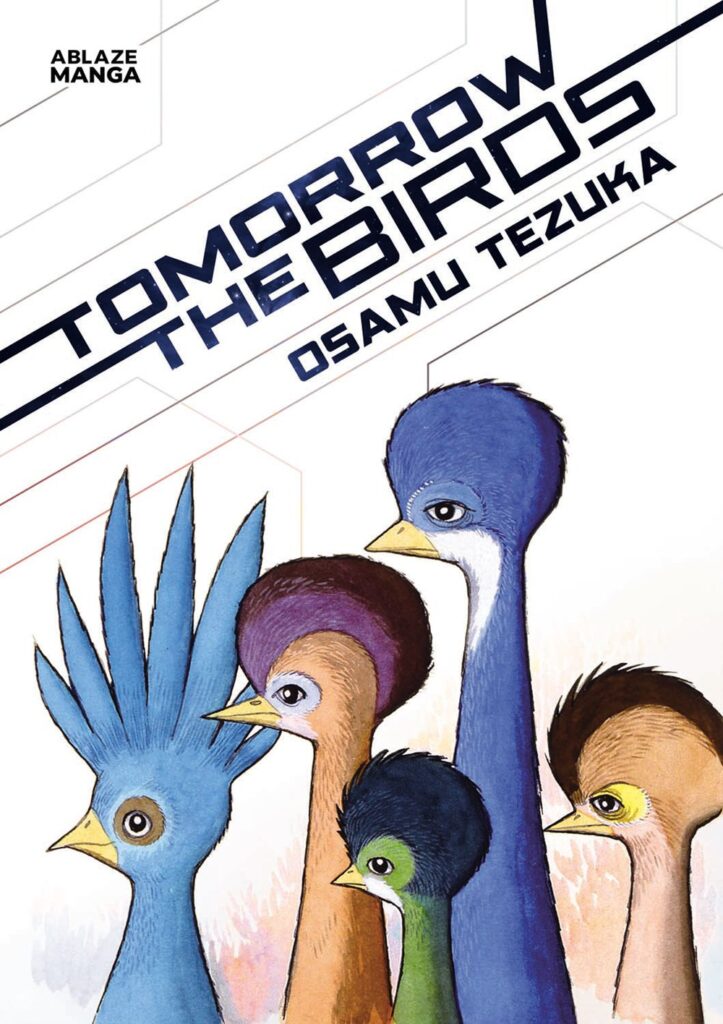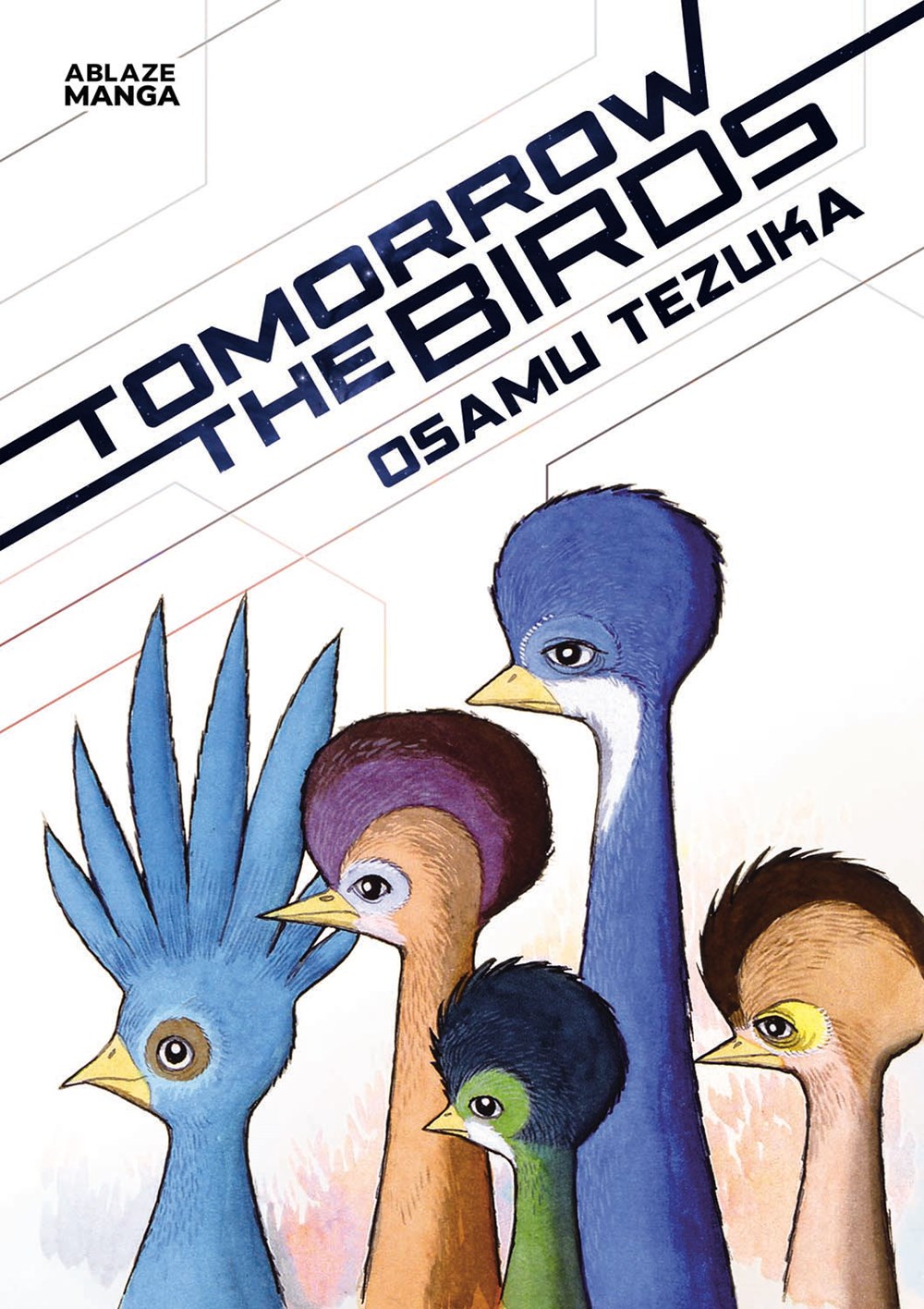Manga Review: Tomorrow the Birds by Osamu Tezuka
Once upon a time, birds did not rule the Earth. That role was taken by the ape-creatures who called themselves “humans.” The humans enslaved birds, killed them for sport, even ate them! But then one day benevolent aliens saw our plight, and arranged to redress this injustice by giving us intelligence. Once we were able to plan and understand language, our natural ability to fly gave us the advantage and we took over, as was our evolutionary birthright. Now we are the masters, and our glorious civilization shall last forever!

This horror-tinged science fiction manga, which was inspired both by Daphne du Maurier’s The Birds and Pierre Boule’s Planet of the Apes, appeared from 1971-1975 in SF Magazine. A big science fiction fan himself, manga author Osamu Tezuka liked working on this more SFnal premise.
The early chapters are more horror-oriented. A heavy smoker keeps songbirds locked in cages all day, feeding them a special food that’s supposed to make them more intelligent and playing songs he wants them to imitate so they’ll make him more money when sold. He doesn’t stop to consider what else his habits might be teaching them.
A man who’s averse to eating poultry survives on a deserted island when his less fastidious fellow castaways do not. But the authorities don’t buy his explanation that they were roasted and eaten by birds, so he doesn’t survive the justice system.
Then the uprising begins in earnest, with mutated magpies leading the invasion of Japan.
Then there’s chapters depicting the struggle back and forth between the subjugated humans and their avian overlords.
This is followed by several stories where the birds have cemented their rule, and Tezuka gets to use bird society as a metaphor for the human society of his time. The best of these is “The Red Beak Party” which depicts the corruption and downfall of a police officer using the particular biology of birds to set up the problem.
Tezuka eventually tired of the series, so he didn’t write their downfall, but closes with a chapter where the aliens are appalled that the Earth birdmen have duplicated the worst aspects of the apeman civilization that preceded them, and maybe they should give the cockroaches a turn instead. The cockroach-man who suggests this is totally not proposing this out of personal bias, unlike the birdman alien who made the original suggestion.
Good: Tezuka’s art is excellent, and there’s many cool ideas on display. Some of the chapters are genuinely chilling.
Less good: Some of the chapters are excessively heavy-handed, especially the saga of “bird Jesus.” And then there’s Chapter 7, “In Rhodesia”, which is why there has to be a disclaimer at the beginning of the book about Tezuka’s outdated depictions of black people. You might want to skip that one entirely.
Content note: Hoo boy. Lots of violence, resulting in deaths of both humans and birds, some very gruesome. Death of children. Torture. Both anthropophagy and cannibalism. Rape, bestiality. Consensual on-page sex too. Male and female human and bird nudity. No human genitalia, but we do see a bird woman pushing an egg through her cloaca. Racism, both human and bird. Miscarriage. Slavery. Someone has their eyes gouged out. This is strong stuff so maybe mature readers only.
This is an interesting volume, but it’s a mixed bag, and may not be to everyone’s taste. Recommended primarily to science fiction fans, especially if you liked Beastars.

